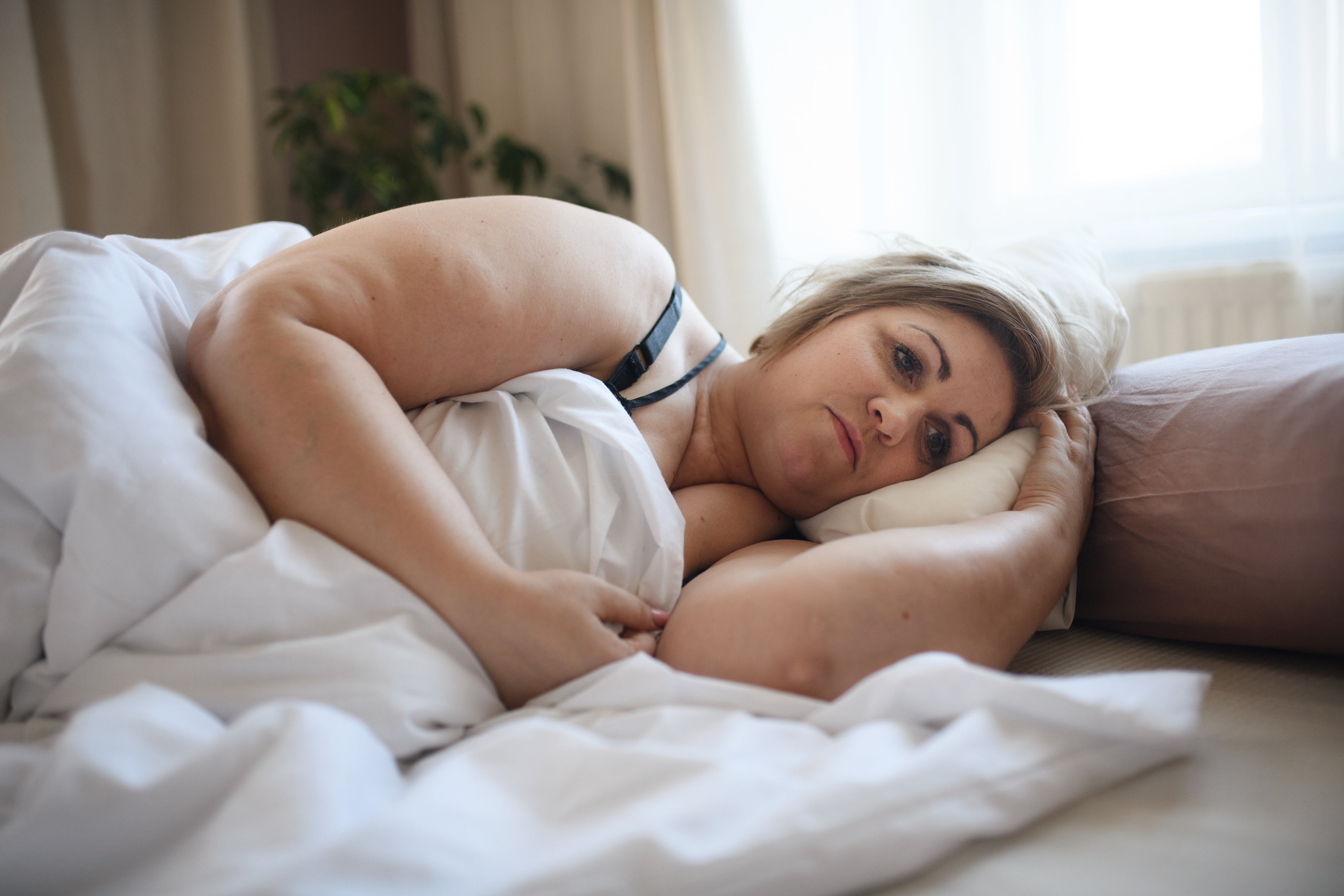The Independent's journalism is supported by our readers. When you purchase through links on our site, we may earn commission.
Abuse in early life results in worse menopause symptoms, says new study
Psychosocial stressors, such as financial instability, can also impact the severity of symptoms

Your support helps us to tell the story
From reproductive rights to climate change to Big Tech, The Independent is on the ground when the story is developing. Whether it's investigating the financials of Elon Musk's pro-Trump PAC or producing our latest documentary, 'The A Word', which shines a light on the American women fighting for reproductive rights, we know how important it is to parse out the facts from the messaging.
At such a critical moment in US history, we need reporters on the ground. Your donation allows us to keep sending journalists to speak to both sides of the story.
The Independent is trusted by Americans across the entire political spectrum. And unlike many other quality news outlets, we choose not to lock Americans out of our reporting and analysis with paywalls. We believe quality journalism should be available to everyone, paid for by those who can afford it.
Your support makes all the difference.Physical and sexual abuse in early life can lead to worse menopause symptoms, according to a new study.
Psychosocial stressors, such as financial instability, can also impact the severity of symptoms, which can include hot flashes, disturbed sleep, anxiety, mood swings and brain fog.
The research, which was published this week in the journal Menopause, studied over 600 women over the course of two decades.
Amongst this sample, a history of physical abuse was reported by 37.3 per cent of participants, who also reported worse menopause symptoms and poorer general health, as well as increased depressive symptoms.
An additional 7.7 per cent reported a history of sexual abuse, which was also associated with worse menopause symptoms and poor general health.
A history of financial instability was also linked with worse menopause symptoms, worse general health, and greater depressive symptoms.

The results of the study are published in the article “Longitudinal associations of psychosocial stressors with menopausal symptoms and well-being among women in midlife”.
The news comes as part of a growing awareness and scrutiny around the condition that affects around half of the population.
A 2021 study revealed that nine in 10 women going through the menopause suffer with mental health issues.
The study by Newson Health Menopause & Wellbeing Centre, in Stratford-upon Avon found that 10 per cent of women surveyed gave up work altogether, 51 per cent cut their working hours, while 52 per cent reported taking days off due to the severity of their menopause symptoms.
In another study, around one in ten women reported experiencing suicidal thoughts because of the perimenopause, while almost half of women revealed they stopped having sex while going through the menopause.
According to Rape Crisis England and Wales, one in four women have been raped or sexually assaulted as an adult, one in six children have been sexually abused, and one in 20 men have been raped or sexually assaulted as an adult.
If you are experiencing feelings of distress and isolation, or are struggling to cope, the Samaritans offers support; you can speak to someone for free over the phone, in confidence, on 116 123 (UK and ROI), email jo@samaritans.org, or visit the Samaritans website to find details of your nearest branch.
If you are based in the USA, and you or someone you know needs mental health assistance right now, call National Suicide Prevention Helpline on 1-800-273-TALK (8255). The Helpline is a free, confidential crisis hotline that is available to everyone 24 hours a day, seven days a week.
If you are in another country, you can go to www.befrienders.org to find a helpline near you.



Join our commenting forum
Join thought-provoking conversations, follow other Independent readers and see their replies
Comments